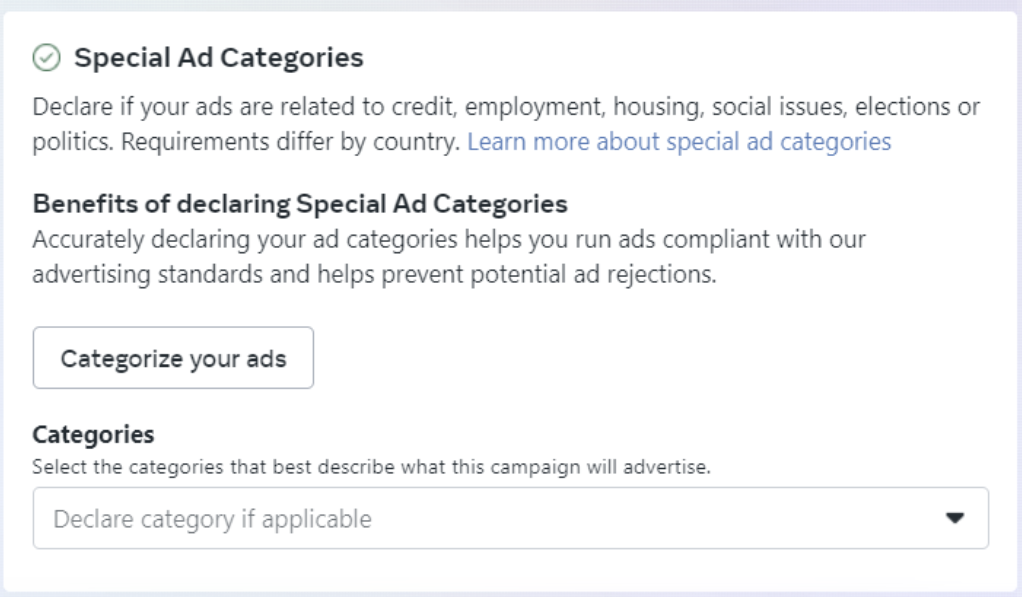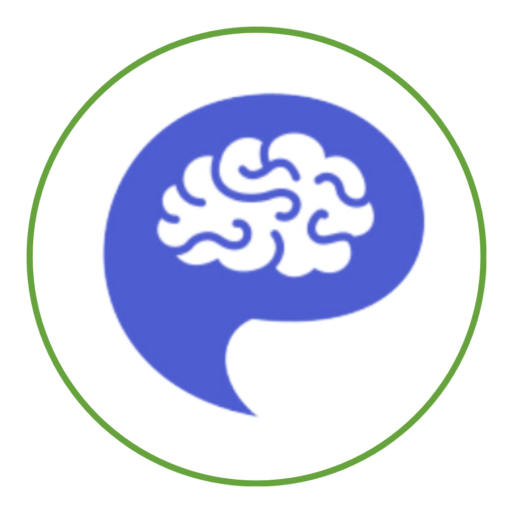Running Facebook ads can be an effective way to grow your business, but navigating the platform’s advertising policies can be tricky. With strict rules designed to maintain a safe and user-friendly environment, even experienced marketers can unintentionally violate guidelines, resulting in disapproved ads, restricted accounts, or full bans. In this guide, we’ll explore common mistakes that lead to ad rejections and provide actionable tips to help you stay compliant with Facebook’s advertising standards, ensuring your campaigns run smoothly without costly disruptions.
Tip One: Know The Rules
It can be hard for new beginners who haven’t had much experience using Facebook ads to know what the rules are in order to not get banned. It’s not like facebook gives you a complete rule book when you set up your first ad account and decide to start running ads. Facebook does offer their own free courses that you can take to learn the ins and outs of Facebook Ads (called Facebook Blueprint). But we’ll list some of the most basic and important rules you should know about below.
Declare the proper ad category
Facebook has ad categories that you can declare on the very first step when you click Create to set up a new ad campaign. There are four main ad categories that Facebook requires you to declare, if the purpose of that ad campaign falls into certain niches.

1. The first ad category is credit. Any business that offers services which provides loans such as credit cards, auto loans, short-term loans, long-term loans, early paycheck loans, or debt of any kind that makes profit by charging interest must declare this category.

- The second ad category is for employment. If you were running an ad campaign in order to hire employees or help another company hire employees then you must declare that ad campaign as for hiring. This includes ads for interns & professional certification programs, which often lead to employment.

3. The third ad category is housing. If you’re running a campaign related to real estate such as buying homes or selling homes, lending, or homeowners insurance then you must declare this ad category.

4. The fourth main ad category is politics, elections and social issues. If you are running an ad campaign that focuses on politics or promoting a specific social cause, then you must declare this ad category.

Most ads for the vast majority of small businesses will not fall under these ad categories. However, if you are running ads in these categories it is very important that you declare them.
Why? When you declare these ad categories, Facebook may take special actions that restrict your ad campaign in some ways. This can include taking away your ability to select target audiences, preventing your ads from being run during certain periods of time (election season), or other preventive measures that have different regulations across different state lines. This is in order for Facebook to stay compliant with long established laws that are aimed to deter discrimination and unethical influence.
- Discriminatory Financial Targeting: Black and Hispanic credit applicants are more likely to be denied credit or receive less funding than requested, have higher interest rates, and lower credit scores when compared to majority-white communities. By declaring the credit ad category Facebook can help prevent predatory lending practices by removing the ability to target ads based on things such as race, gender, and zip code.
- Anti Discrimination Employment: Title VII of the Civil Rights Act of 1964 prohibits discrimination in employment based on race, color, religion, sex, or national origin. It also applies to pregnancy, sexual orientation, and gender identity. The Age Discrimination in Employment Act of 1967 protects people who are 40 years of age or older from discrimination in employment. The Rehabilitation Act of 1973 prohibits discrimination against people with disabilities in programs or activities that receive federal financial assistance. The Equal Employment Opportunity Commission (EEOC) enforces these laws in all aspects of employment, including recruitment, selection, termination, and other decisions (like marketing). By removing targeting options for ads declared for employment, Facebook can ensure recruitment advertisements adhere to these laws.
- Fair Housing Act: The Fair Housing Act (FHA) is a federal law in the United States that was passed in 1968 as part of the Civil Rights Act. Its primary purpose is to prevent discrimination in the sale, rental, and financing of housing based on specific protected characteristics such as; race, color, national origin, religion, sex, gender, familial status (whether someone has children under 18 or is pregnant), and disability. By removing targeting options for ads in the housing industry, Facebook can ensure these advertisements adhere to fair housing laws.
- Politically Sensitive Influence: To avoid allegations of their algorithms biasing certain political ads for advantage or suppression, Facebook completely disallows political advertising during certain politically sensitive timeframes. For example, this blog is being written in September of 2024 during an election year. Facebook will be implementing a political ads restriction period that will run from 12:01 AM PT on Tuesday, October 29th, 2024 through 11:59 PM PT on Tuesday, November 5th, 2024 which will prevent all ads about social issues, elections or politics in the United States from being run or created during that time. Facebook implemented similar restrictions during the 2020 election season and 2022 midterm election season.
These are some reasons why it’s so important that you declare the proper ad category if they apply to your ads. If you don’t, Facebook could get in trouble for breaking the law and they don’t want bad advertisers putting them in a bad situation. Thus understandably, Facebook will ban you if you don’t declare required ad categories.
People may purposefully not declare ad categories because they want the full targeting options available to them, but this is not a smart decision. Even if Facebook’s algorithms make a mistake by allowing you to run ads in these categories without declaring it, it will eventually notice that you are not following their rules. Facebook’s compliance algorithms are a continuous watchdog that never sleeps and is always reanalyzing your ads for not just things like performance and engagement, but compliance to their rules.
Avoid Sensalization
Avoiding sensationalization in advertising is crucial for maintaining trust and ensuring compliance with platform guidelines. Sensationalized ads often use exaggerated claims, misleading language to grab attention, but this approach can backfire, leading to ad disapproval or even account suspension. Platforms like Facebook and Google have strict policies against ads that manipulate emotions or deceive users, as these tactics are seen as disruptive and unethical. Instead of relying on hype, focus on delivering clear, honest messages that resonate with your target audience.
Here are a few examples of how to avoid sensationalization in ads:
- Weight Loss Products:
- Sensationalized: “Lose 30 pounds in one week—guaranteed!”
- Avoids Sensationalization: “Support your weight loss journey with a balanced plan and natural supplements.”
- Financial Services:
- Sensationalized: “Get rich overnight with our investment plan!”
- Avoids Sensationalization: “Discover smart investment strategies for long-term financial growth.”
- Skincare Products:
- Sensationalized: “Erase all wrinkles in just one day with our miracle cream!”
- Avoids Sensationalization: “Nourish and hydrate your skin with clinically tested ingredients for a smoother complexion over time.”
- Real Estate:
- Sensationalized: “Own your dream home now—no credit checks required!”
- Avoids Sensationalization: “Explore flexible financing options for first-time homebuyers.”
In these examples, the more realistic and honest approach helps avoid misleading claims, adhering to platform guidelines and fostering trust with customers.
By maintaining a tone of integrity and avoiding overblown promises, you not only protect your account from bans but also build lasting credibility with potential customers.
Avoid Shocking Imagery
Facebook aims to maintain a safe and respectful environment for all users, which means certain types of content are strictly prohibited. Violating these rules can result in ad rejections, account restrictions, or even permanent bans. To help you avoid these pitfalls, here’s a breakdown of the types of content that should never appear in your ads.
- Violence: Ads cannot depict or promote violence, graphic imagery, or threats of harm, including violent crimes or dangerous behavior. Even our agency has to be careful since one of our specialties is marketing for schools, including martial arts schools. Our advertisers tread carefully to avoid showing violence while promoting self-defense gyms.
- Adult Content: Ads cannot contain nudity, sexually suggestive content, or explicit material. This includes images with overly sexualized poses, even if no nudity is shown.
- Illegal Products and Services: Ads cannot promote illegal activities or products, such as drugs (including marijuana where illegal), counterfeit goods, or unlicensed pharmaceuticals.
- Weapons: Ads cannot include or promote the sale or use of firearms, ammunition, or explosives; this includes airsoft, fireworks, pepper sprays, gun shows, swords, crossbows and more. This includes ads for parts and accessories related to weapons (you CAN promote weapons safety courses).
- Hate Speech: Ads that promote hate speech, inflammatory language, or demeaning a person or group based on characteristics such as ethnicity or sexual orientation are strictly prohibited.
- Sensationalized or Shocking Content: Ads cannot contain content that shocks, disgusts, or is intended to provoke a strong emotional reaction, including grotesque images or dangerous stunts.
Tip Two: Avoid Risky Niches
Every small business needs marketing. But that doesn’t mean you have to choose risky niches if you’re thinking about becoming a Facebook ads expert. Beginners especially should get their feet wet by avoiding the choppy waters of niches that require an extra level of specialized expertise.
List of Risky Niches
- Ad Category Niches That Require A Declaration: As we just reviewed the ad categories above, it makes sense that these niches can be riskier to advertise for and simply harder for beginners to obtain quality results for. Avoid running ads for businesses in the credit industry, housing industry, recruitment offices, and politics or social causes if you are a beginner advertiser.
- CBD: Laws surrounding products that are infused with cannabinoids vary widely across different state lines. While this industry is set to make billions over the coming decades, beginners should avoid being lured by this lucrative opportunity until they have a deep understanding of the best practices that specialized psychedelic industry marketers have to guide them through these risky waters that require precision.
- Gambling & Betting: Strict regulations and advertising restrictions vary by country, and missteps can lead to penalties. Ethical concerns also arise when targeting vulnerable groups.
- Guns, Knives, & Gun Parts: While licensed online retailers are allowed to engage in commercial activity involving firearms and ammunition on Facebook as long as all applicable laws and regulations are followed (private sales between individuals is not allowed on Facebook), they are prohibited from promoting sales through ads. You can however advertise weapons safety training. This can be dangerous territory for beginner advertisers to navigate.
- Spyware or Surveillance Equipment: Facebook ads cannot promote products like spy cameras, phone tapping devices, or other tools used for unauthorized surveillance.
- CBD & Cannabis Products: These industries face heavy regulation in many regions, including restrictions on advertising platforms like Google and Facebook, making compliant marketing strategies challenging.
- Adult Entertainment: This niche has significant advertising restrictions across platforms, and the association could harm your brand reputation in other sectors.
- Cryptocurrency: Marketing in the crypto space is risky due to evolving regulations and the potential for scams. Regulatory crackdowns and bad actors have tarnished the reputation of the entire industry.
- Multi-Level Marketing (MLMs): Often criticized as pyramid schemes, MLMs are heavily regulated, and marketing for them can put you in legal or ethical gray areas. Their reputations also make it harder to build trust with broader audiences.
- Pharmaceuticals & Addiction Treatment Services: Stringent regulations from agencies like the FDA limit how you can promote medication or addiction treatment. Misleading claims or mishandling sensitive information can result in legal consequences. Though this blog is about avoiding Facebook ad bans, our article on avoiding Google Ads bans details the particularly heavy restrictions Google Ads requires for advertisers in these industries. Thankfully, Facebook Ads don’t have this same stringent requirements but this industry can still be a risky one to dive into.
- Financial Services & Loans: The financial sector is highly regulated, especially regarding credit repair, payday loans, or high-interest loans. False or misleading advertising can lead to severe penalties.
- Tobacco, Vaping, and Related Products: Ads for cigarettes, cigars, and other tobacco products, including e-cigarettes and vaping products, are prohibited on Facebook. There are also ethical concerns related to health risks.
- Supplements & Weight Loss Products: There are stringent advertising rules, especially regarding health claims. Misrepresentation can lead to legal action and harm consumer trust.
- Alcohol & Spirits: While legal, alcohol marketing faces heavy restrictions on platforms and advertising networks, particularly in how it can be advertised to minors.
Marketing in these niches requires extensive knowledge of the regulatory environment and a clear strategy to avoid legal pitfalls.
3. Become Meta Verified
Facebook/Meta has a verification process you can sign up for that verifies your identity by sending them photos of your Driver’s License, answering a few questions, and other verification methods.
Meta Verification costs $15/month as of this writing, but if you plan on being a marketer for years to come this expense is worth its weight in gold if it helps Facebook’s algorithm trust you more and be slower to ban you if they suspect something has gone wrong in your account. When I see this transaction process in my bank account every month, it gives me peace of mind that Facebook has more peace of mind about me.
Not only that, but becoming Meta Verified grants you access to Facebook’s support agents. That’s right, real-life human people! So if you do ever unfortunately experience the miserable, dreaded ban you can at least have a bit more hope in your heart that you can become unbanned if you fix whatever issue Facebook is flagging you for. You can get Meta Verified for your business account and/or get Meta Verified for your personal account easily today.
Conclusion
Running Facebook ads for your business can be an excellent way to advertise your services to attract more clients. In fact, Facebook Ads won our #1 spot in our ranked list of top 5 marketing strategies for small businesses. But to achieve longevity on the platform, understanding the basics on how to avoid being banned from the platform can save you lots of time, money, and heartache.
- If you understand Facebook’s rules you have a better chance of not breaking their rules.
- Avoiding risky niches can prevent you from dealing with higher level complex problems that require a specialty & more experience to not stumble into a ban.
- Pay for Meta Verification and get a bit more peace of mind for $15 a month. Speaking of peace; peace out and have a great day ✌🏾
If you would like experienced professionals to run your Facebook Ads for you & bring you more clients, reach out to us at PsychVertising for a free consultation. We specialize in marketing for brain building businesses such as mental health therapy practices, psychiatric practices, child development, and schools. We offer Facebook Ads in all of our tier plans, from our lowest to highest.
Get Psyched!
Growing your business is an exciting endeavor when you have specialists that care about your success by your side.
Reach out to start working with our team today.

